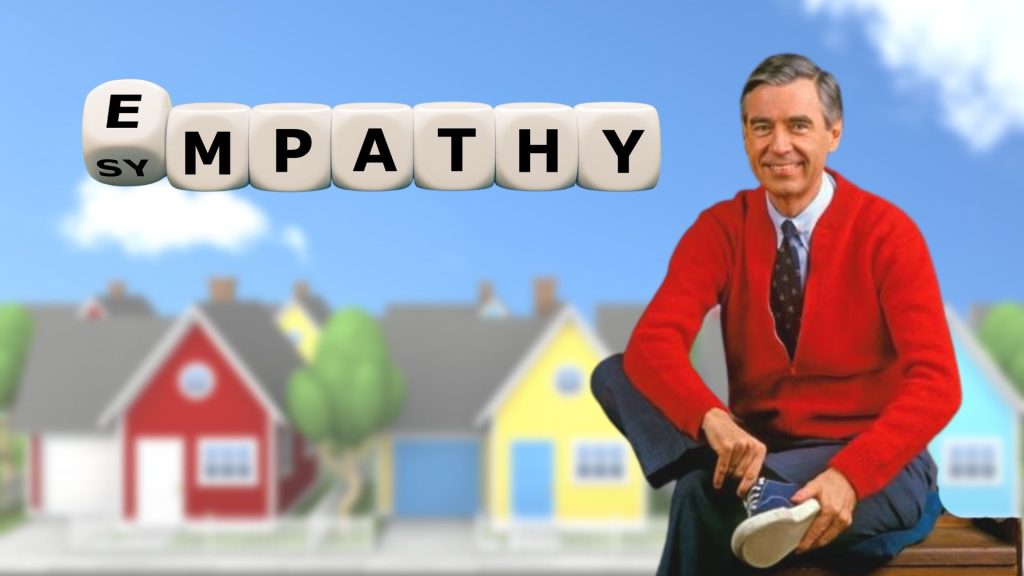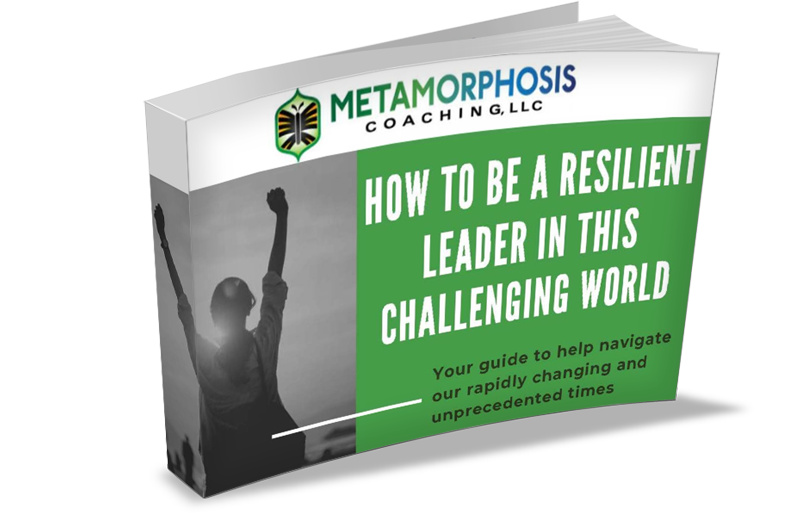What Mr. Rogers Can Teach Us About Empathy and Why it Matters

Your spouse regularly lashes out, frustrated over the temperature at home, and you engage in ongoing thermostat wars. At work, a project manager you supervise continually complains about software that doesn’t maintain her progress notes. A close friend continues to vent to you about how it’s difficult for her to commit to gathering when you propose limited options. Do you ever wonder why some people remain stuck sharing the same story over and over?
As Stephen Covey says, “Seek first to understand and then be understood.” This round-and-round dialogue may indicate a need for empathy. It’s difficult for us to move past a topic or issue or listen to others until we have felt heard. Empathy holds tremendous power in creating thriving relationships and is one of the most misunderstood and under-utilized EQ skills.
Dr. Brené Brown indicates that empathy is about understanding and connecting to the emotions around an experience. It is feeling with someone, not feeling for them; this is where empathy can be blurred with sympathy. Sympathy often involves pity for another person, which can be insulting as it implies we are outpacing in some way. Empathy does not involve pity and requires us to suspend all judgment of another’s viewpoint as being good or bad or seeing another’s feelings as being invalid. While we may disagree with why someone feels a certain way about a given situation, empathy teaches us to connect with shared emotions. I.e., “I, too, know what it’s like to feel overwhelmed, sad, etc.”
It’s this disconnect in understanding and acceptance that often leads to incivility, disrespect, and a lack of empathy, especially when controversial topics and strong belief systems are involved.
Developing Empathy:
We must first have deep empathy for ourselves before fully empathizing with another. This can be difficult, especially in cultures where it’s reinforced to first attend to the concern of others and suppress our feelings. We must be aware of, understand, and accept our feelings and emotions to fully understand and accept them in others.
Empathy creates a safe container for vulnerable communication. Vulnerability is powerful and is the currency of exchange to build trust and thriving relationships at home, work, and everywhere in our sphere of influence. It’s also necessary to apply a little two-step in conversation and spend some time to discover what is meaningful to others and motivates them so we know how to respond appropriately. The Platinum Rule teaches us to treat others as THEY want to be treated (not the cookie-cutter Golden Rule that most of us were taught growing up, which says we should do unto others as they would do unto us). Brené Brown also talks about putting ourselves in another’s shoes to connect to an emotion we’ve likely experienced, though maybe for a different situation. For example, if a friend loses their job, we can relate to the emotion of fear and disappointment even though we were never laid off or fired from a position.
Emulating Mr. Rogers
Due to his keen ability to empathize, Mr. Rogers was among the most highly respected and regarded TV personalities for decades. He makes a great ‘avatar’ for empathy because he treated everyone as a VIP and was diligent in his communication. Mr. Rogers reads, relates, and responds with ease and finesse, which segues to three strategies you may incorporate to elevate your empathy skills:
Read – Deep active listening is critical and needs to happen at a level attuned to the other party. “LISTEN,” rearranged, spells “SILENT.” Listening with the intent to respond is not effective and will shut down a healthy communication cycle. Suspend judgment. This is a time for learning. To quote Tom Chi, “Knowing is the enemy of learning.”
Relate – This might involve using more silence, asking powerful questions to extract more meaning, and using body language like a smile, hug, or leaning in. Mirroring body language can also be helpful if it’s not threatening because our neurons respond favorably to similar gestures—this happens naturally when we are genuinely engaged and shouldn’t be forced. Remember the platinum rule, so you are making your interaction about the other person and not your agenda. It can help to internalize the mantra that everyone has a story.
Paraphrasing and summarizing can help check that you fully understand and facilitate relating. Responses could include: “I hear you saying….,” or “That sucks that you didn’t get the promotion. Would you like to talk about it?”
Respond – This is relating at a higher level. After feeling with the person, it’s time to decide if there is more to learn. Perhaps ask if the other person would like to share more or if you feel equipped, ask if they would like some help to solve the challenge. But don’t go into problem-solving without asking permission first, as the other party may not want ideas. If they welcome the opportunity, batting around some ideas may provide some hope and initial peace. Finally, when some closure and peace have been restored, it can be helpful to redirect to a new topic. Possibilities may include saying, “I’m off to the water cooler” if you’re at work or “any interesting weekend plans?” which could apply to almost anyone. Or, it might be better to say nothing more and just let the other party stay in their space to process their thoughts and feelings. There is no cookie-cutter formula, and it is ok to experiment and even admit that you’re not quite sure how to respond.
Acknowledging and showing others’ thoughts and feelings matter helps stop the cycle of repeating stories so others can move beyond feeling stuck. Hearing what others are communicating intellectually and emotionally is empathy in practice. It helps to recognize communication verbally, through body language, and behaviorally. Empathy requires a genuine interest in the other person and applying the platinum rule. Remember what Mr. Rogers would do to slow down, deeply listen and treat everyone like a VIP. Get curious, ask questions, listen without judging and then check to be sure you understand and respond for some initial resolve. Life is too short for thermostat wars, misunderstood employees, and not making the most of our time on this planet with family and friends. Let’s change the dialogue to heal and transform our planet.
Special Report:
How to be a Resilient Leader in this Challenging World. PLUS More Free Resources!

Sign up below and get your FREE "How to Be a Resilient Leader in This Challenging World" Report today!
